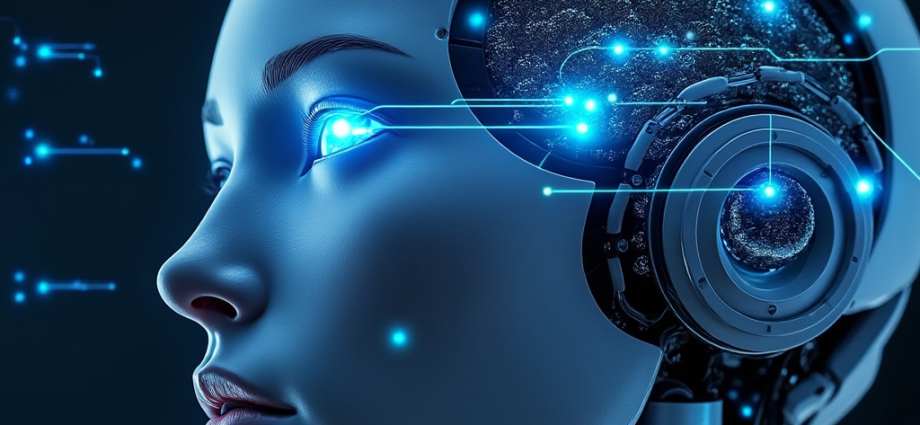Artificial Intelligence (AI) has rapidly evolved from a futuristic concept to an integral part of our daily lives. From virtual assistants like Siri and Alexa to advanced algorithms driving autonomous vehicles, AI’s influence is undeniable. However, as AI continues to develop, it raises significant ethical questions. Is AI a friend that enhances human capabilities, or a foe that threatens our privacy, jobs, and even our existence? This article delves into the ethical considerations surrounding AI, exploring its potential benefits and risks.
The Promises of AI
Enhancing Human Capabilities
AI has the potential to augment human abilities in numerous ways. In healthcare, AI can analyze vast amounts of medical data to assist in diagnosing diseases, predicting patient outcomes, and personalizing treatment plans. For example, AI algorithms can detect anomalies in medical images, such as X-rays or MRIs, with a level of accuracy that rivals human experts. This can lead to earlier detection of diseases like cancer, ultimately saving lives.
In education, intelligent tutoring systems can provide personalized learning experiences, helping students grasp complex concepts more effectively. These systems can adapt to individual learning styles and paces, offering customized feedback and resources. This personalized approach can improve student engagement and academic performance, particularly in subjects like mathematics and science.
When it comes to productivity, automation of repetitive tasks allows humans to focus on more creative and strategic activities, potentially boosting overall productivity. AI-driven tools can handle data entry, scheduling, and customer service inquiries, freeing up human workers to engage in higher-value tasks that require critical thinking and innovation.
Solving Complex Problems
AI can also tackle problems that are beyond human capabilities. For instance, AI models can predict environmental changes and help develop strategies to mitigate the effects of climate change. Machine learning algorithms can analyze vast datasets from satellite imagery, weather patterns, and ocean currents to forecast climate trends and identify areas at risk of natural disasters. This information can inform policy decisions and disaster preparedness efforts.
In scientific research, AI accelerates progress by analyzing data and identifying patterns that humans might miss, leading to breakthroughs in various fields. For example, AI has been instrumental in the discovery of new drugs by predicting how different compounds will interact with biological targets. This can significantly reduce the time and cost associated with bringing new medications to market.
The Ethical Dilemmas
Privacy Concerns
AI systems often require vast amounts of data to function effectively, raising significant privacy issues. The collection and storage of personal data by AI systems can lead to unauthorized access and misuse. For example, facial recognition technology, while useful for security purposes, can be exploited for mass surveillance, potentially infringing on individual privacy and civil liberties.
Additionally, AI-powered surveillance systems can infringe on individual privacy and civil liberties. Governments and corporations may use AI to monitor citizens’ activities, raising concerns about the erosion of personal freedoms. The potential for abuse is significant, as these systems can track individuals’ movements, communications, and behaviors without their consent.
Job Displacement
Automation driven by AI can lead to job displacement. As AI systems take over tasks previously performed by humans, there is a risk of significant job loss, particularly in industries reliant on routine tasks. For instance, manufacturing, transportation, and customer service sectors are likely to see substantial changes as AI and robotics become more prevalent.
The transition to an AI-driven economy may also widen the skill gap, leaving behind those who lack the necessary technical skills. Workers in low-skill jobs may find it challenging to adapt to new roles that require advanced technical knowledge. This could exacerbate economic inequality and create social tensions.
Bias and Fairness
AI systems can perpetuate and even exacerbate existing biases. If the data used to train AI models is biased, the resulting algorithms can produce unfair and discriminatory outcomes. For example, AI-driven hiring systems have been found to favor certain demographics over others, leading to biased hiring practices.
The “black box” nature of many AI systems makes it difficult to understand how decisions are made, raising concerns about accountability and fairness. Without transparency, it is challenging to identify and rectify biases in AI algorithms. This lack of accountability can undermine trust in AI systems and their outcomes.
The Path Forward
To ensure that AI serves as a friend rather than a foe, it is crucial to address these ethical concerns. Governments and regulatory bodies must develop frameworks to govern the use of AI, ensuring that it is used responsibly and ethically. This includes creating policies that protect individual privacy, prevent discrimination, and promote transparency.
AI developers should strive for transparency in their algorithms, making it easier to understand and trust AI systems. This can be achieved through explainable AI techniques, which aim to make AI decision-making processes more interpretable to humans. By providing clear explanations for AI-driven decisions, developers can build trust and ensure accountability.
Investing in education and training programs can help individuals adapt to the changing job landscape and develop the skills needed to thrive in an AI-driven world. This includes not only technical skills but also soft skills like critical thinking, creativity, and emotional intelligence. By preparing the workforce for the future, we can mitigate the negative impacts of job displacement and ensure that everyone benefits from AI advancements.
AI holds tremendous potential to transform our world for the better, but it also poses significant ethical challenges. By addressing these challenges proactively, we can harness the power of AI as a friend that enhances our capabilities and solves complex problems, rather than a foe that threatens our privacy, jobs, and fairness. The ethical development and deployment of AI are not just technological issues but societal imperatives that require collective effort and vigilance.

